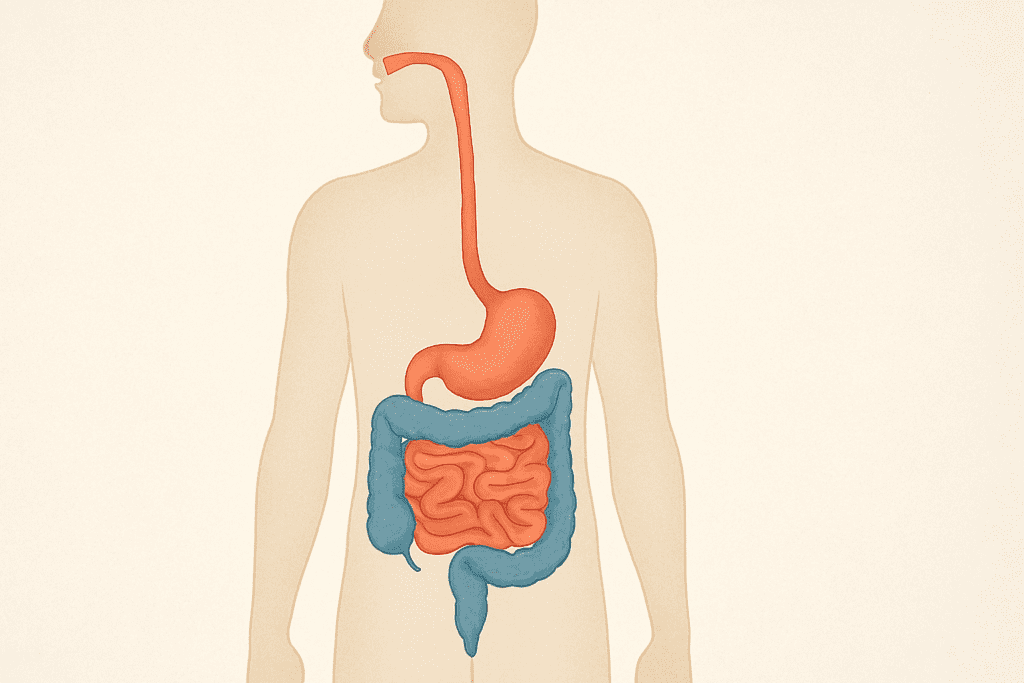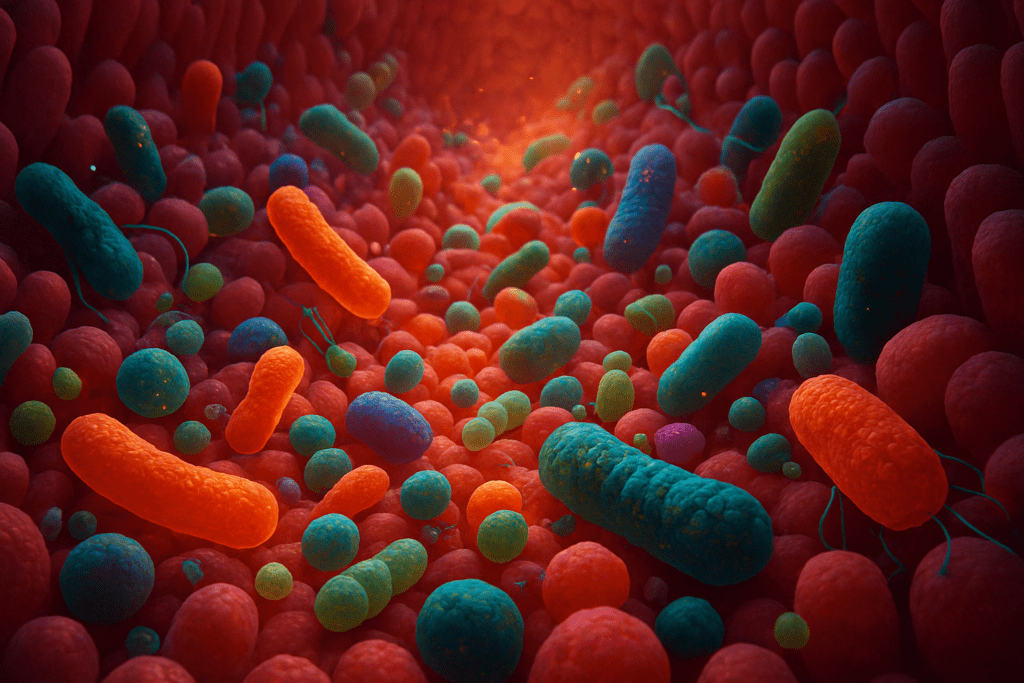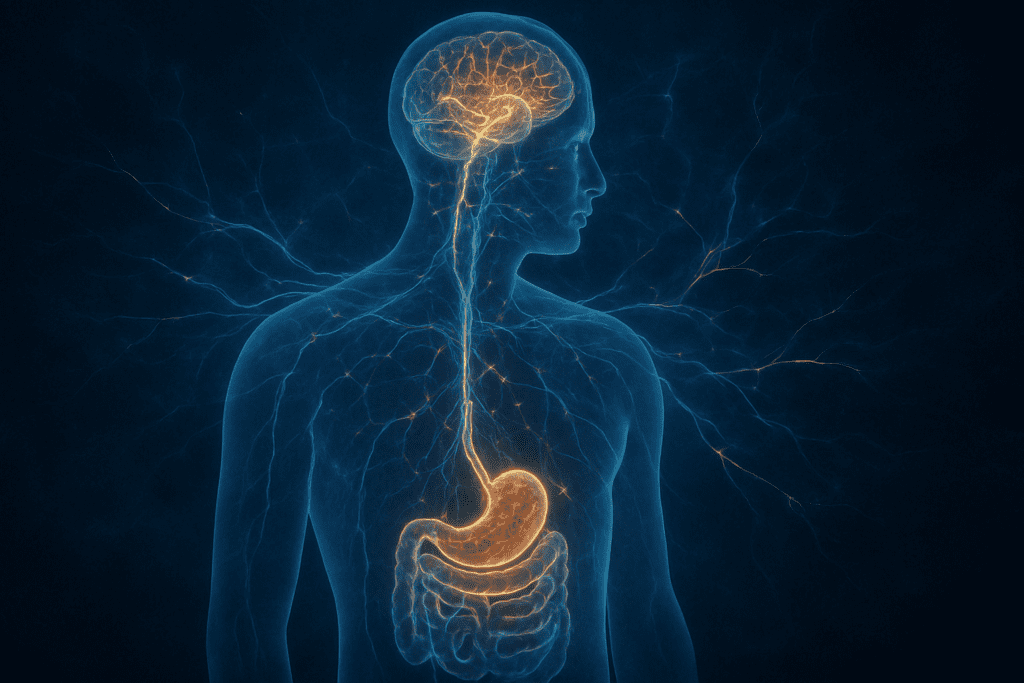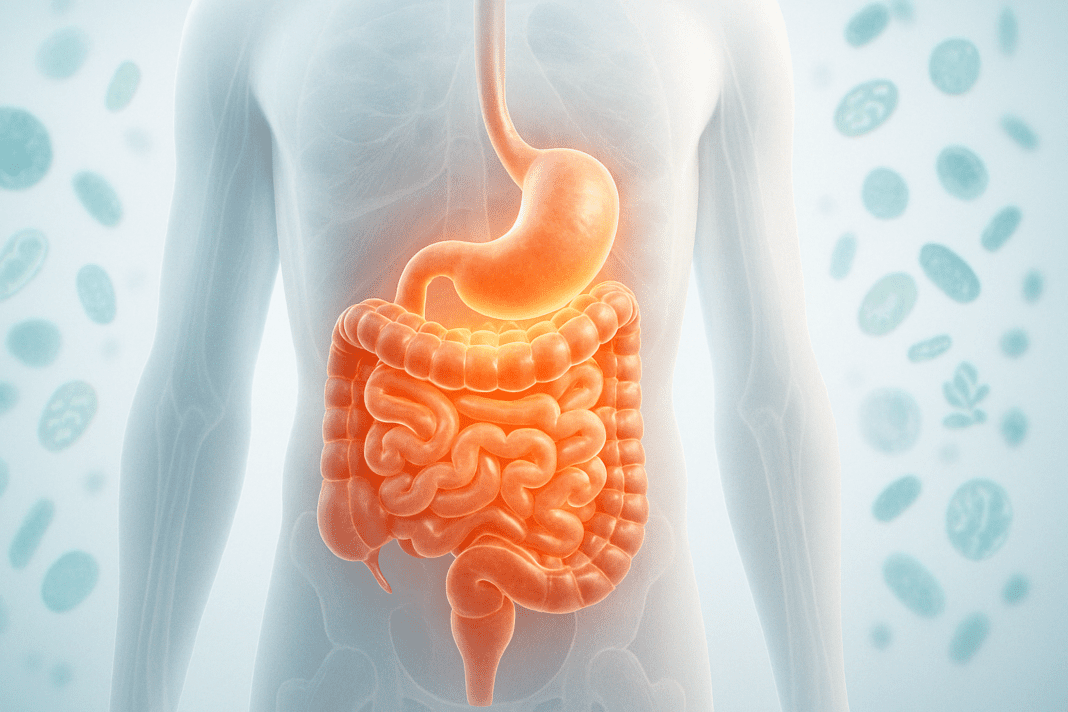Introduction: Understanding the Importance of Gut Health
Understanding where your gut is and what it does is not only a matter of anatomical curiosity but also a gateway to better health. While many of us casually refer to the “gut” in conversations about digestion or discomfort, few truly understand the complexity and importance of this remarkable part of the body. With increasing attention on gut health in both scientific circles and popular wellness communities, it has never been more relevant to explore the question: where is your gut, and why does it matter for your overall well-being?
You may also like: Macronutrients vs Micronutrients: What the Simple Definition of Macronutrients Reveals About Your Diet and Health

Locating the Gut: More Than Just Your Stomach
The human gut, or gastrointestinal (GI) tract, extends from the mouth to the anus, yet when most people refer to the “gut,” they are often speaking about the stomach and intestines, particularly the small and large intestines. These organs reside in the abdominal cavity and serve as the central hub for digestion, absorption, and interaction with countless microbes. Knowing where your gut is located helps you better understand the signals your body sends, especially when things go awry. Whether you experience bloating, discomfort, irregular bowel movements, or even mental fog, these symptoms can often be traced back to gut health, emphasizing the importance of recognizing this core body system.
What Is the Gut? A Complex and Essential System
Beyond mere location, the gut plays a vital role in maintaining homeostasis across multiple systems. It facilitates nutrient absorption, immune defense, and hormonal regulation. The gut houses around 70% of the body’s immune cells and contains a nervous system so complex it is often referred to as the “second brain” — the enteric nervous system. This neural network allows the gut to operate with remarkable autonomy, even influencing mood, cognition, and stress responses through the gut-brain axis. So when someone asks, gut what is it, they are inquiring into one of the most intricate and indispensable systems of the human body.

The Microbiome: Your Inner Ecosystem
One of the most revolutionary insights in modern medicine is the role of the gut microbiome — a dynamic ecosystem of trillions of bacteria, viruses, and fungi that live in the digestive tract. These microbes are not passive passengers; they actively participate in digestion, modulate the immune system, synthesize essential nutrients like vitamin K and B12, and even play a role in mental health. Studies have found correlations between gut microbiome composition and conditions ranging from obesity to depression, making it clear that knowing where your gut is involves understanding its microscopic residents as well.

Nutrition and Gut Wellness: What You Eat Shapes How You Feel
Diet plays a pivotal role in shaping gut health, and this is where nutrition-based wellness becomes essential. The food you consume either nourishes or disrupts the delicate balance of your microbiome. Diets rich in processed foods, sugars, and artificial additives can lead to dysbiosis, or microbial imbalance, which has been associated with inflammation, autoimmune disorders, and gastrointestinal issues. On the other hand, diets high in fiber, fermented foods, and plant-based diversity promote a healthy gut microbiome, enhancing your body’s ability to process nutrients and defend against pathogens.
Probiotics and Prebiotics: Fueling a Healthy Gut
Probiotics and prebiotics are two categories of dietary components that are especially beneficial for gut health. Probiotics are live bacteria found in fermented foods like yogurt, kefir, sauerkraut, and kimchi, which can replenish beneficial gut flora. Prebiotics, found in foods such as garlic, onions, bananas, and whole grains, serve as food for these good bacteria, encouraging their growth and activity. These components exemplify the connection between what you eat and how your gut functions, reinforcing the value of nutrition-based strategies for wellness.

The Gut-Brain Axis: How Your Digestive System Talks to Your Mind
The concept of the gut-brain axis further illustrates why the gut matters so profoundly for mental and emotional health. This bi-directional communication pathway allows the gut and brain to share information constantly. Neurotransmitters like serotonin, often associated with mood regulation, are significantly produced in the gut. This means that gut imbalances can contribute to mental health issues such as anxiety and depression, and conversely, chronic stress can negatively impact gut function. Thus, answering the question “gut what is its role?” requires considering its contributions beyond digestion alone.

Gut Health and Chronic Disease Prevention
Emerging research on the gut also highlights its role in chronic disease prevention. Conditions such as type 2 diabetes, cardiovascular disease, and even certain cancers have been linked to the state of the gut microbiome. A diverse and balanced microbiome may reduce systemic inflammation, improve insulin sensitivity, and support healthy lipid profiles. Understanding where your gut is and how it interacts with other body systems provides a proactive approach to managing long-term health risks through lifestyle modifications rather than reactive treatments alone.
Gut Health and Immunity: Your Body’s First Line of Defense
Another critical aspect of gut health is its influence on immunity. Because such a large percentage of immune cells are housed in the gut, it serves as a first line of defense against pathogens. The gut lining acts as a physical barrier, while immune cells within the mucosal layer assess and respond to threats. However, when this barrier is compromised—a condition often referred to as “leaky gut”—it can allow toxins and bacteria to enter the bloodstream, triggering widespread inflammation and immune reactions. This highlights the importance of maintaining gut integrity through proper diet, stress management, and adequate sleep.

Lifestyle Factors That Support Gut Health
When considering the practical side of gut wellness, lifestyle factors cannot be ignored. Exercise has been shown to positively influence the diversity and composition of gut microbiota. Moderate physical activity enhances microbial diversity and contributes to better gut barrier function. Sleep also plays a vital role, as disrupted circadian rhythms can negatively impact both the gut microbiome and digestive efficiency. Stress management techniques such as meditation, deep breathing, and regular relaxation practices further support a healthy gut-brain connection, making it clear that wellness strategies must be holistic in nature.
What to Avoid for Better Gut Health
While much of the focus is on what to eat and how to live for optimal gut health, it is equally important to understand what to avoid. Overuse of antibiotics, while sometimes necessary, can disrupt the microbial balance by eliminating not only harmful bacteria but also beneficial strains. Nonsteroidal anti-inflammatory drugs (NSAIDs), excessive alcohol, and artificial sweeteners have also been linked to negative gut health outcomes. Therefore, responsible use of medications and mindful dietary choices are essential components of any gut-supportive lifestyle.
Recognizing the Warning Signs of Gut Imbalance
For those seeking to optimize gut health, it is useful to recognize the early signs of imbalance. Common indicators include bloating, constipation, diarrhea, food intolerances, fatigue, and even skin issues like acne or eczema. These symptoms should not be ignored, especially when persistent, as they may signal deeper disruptions in the gut ecosystem. Rather than masking symptoms with temporary fixes, a comprehensive evaluation of diet, lifestyle, and medical history can reveal the root causes and inform effective treatment plans.
Personalized Medicine and the Future of Gut Health
Health professionals now advocate for personalized approaches to gut health, incorporating genetic, microbial, and lifestyle data to tailor interventions. Advances in microbiome testing allow for the identification of specific bacterial strains present in an individual’s gut, enabling precision nutrition and targeted therapies. These innovations underscore the importance of knowing not just where your gut is, but what it needs to thrive, offering a roadmap to improved health and disease prevention through evidence-based practices.
Fiber: The Unsung Hero of Digestive Health
The role of fiber in gut function cannot be overstated. Soluble fiber forms a gel-like substance in the intestines, slowing digestion and promoting satiety, while insoluble fiber adds bulk to stool and supports regular bowel movements. Both types are essential for maintaining a healthy gut environment. Yet, most people fall short of recommended fiber intake, which underscores the need for increased consumption of vegetables, fruits, legumes, and whole grains. By nourishing beneficial microbes and improving gut motility, fiber acts as a foundational component of gut wellness.
Gut Health Across the Lifespan
Children and older adults alike benefit from gut health education and maintenance. In children, a well-developed gut microbiome supports immune development and can protect against allergies and asthma. In older adults, gut diversity tends to decline, which can impact nutrient absorption, immunity, and overall resilience. Tailoring diets to support microbiome health at each life stage ensures better outcomes and promotes vitality across the lifespan. Understanding gut function in this context is an essential component of preventive healthcare.
Traditional Diets and Their Lessons for Modern Wellness
Cultural dietary practices also reveal valuable insights into gut health. Traditional diets from regions with high life expectancies—such as the Mediterranean and Okinawan diets—are rich in whole foods, fermented items, and plant-based ingredients. These dietary patterns naturally support gut health, demonstrating that ancestral eating habits can offer practical guidance for modern nutrition. Observing these patterns provides real-world validation for the scientific principles behind gut wellness and invites a return to simpler, nutrient-dense food choices.
The Gut in Clinical Practice and Sports Performance
In clinical settings, gastrointestinal health is increasingly seen as a diagnostic window into broader systemic issues. Gastroenterologists and functional medicine practitioners often assess gut health as a preliminary step in evaluating chronic symptoms or unexplained conditions. With advanced diagnostic tools, including endoscopy, stool analysis, and genetic testing, clinicians can pinpoint dysfunction and guide interventions accordingly. This approach reflects a shift toward integrative medicine, where treating the gut becomes a central strategy in addressing diverse health concerns.
Even in the realm of sports and physical performance, gut health matters. Athletes with optimized gut microbiomes experience improved energy utilization, reduced gastrointestinal distress during exertion, and faster recovery times. Sports nutrition programs now incorporate probiotic and prebiotic strategies to enhance performance outcomes, showcasing the gut’s role in fueling the body efficiently and sustaining peak output. This reveals the gut as a central player in both health and human potential.
Frequently Asked Questions: Where Is Your Gut and Why It Matters for Your Health
1. How does your gut impact your skin health?
The gut-skin connection is a growing area of research that shows how disruptions in the gut microbiome can influence inflammatory skin conditions. When your gut is imbalanced, harmful bacteria and toxins may pass into the bloodstream, triggering skin flare-ups such as acne, eczema, or psoriasis. Understanding where your gut is and how it supports immune regulation gives insight into these reactions, as inflammation often begins in the digestive tract. Skin health often improves when gut health is restored through diet, probiotics, and stress reduction. This reveals yet another dimension of gut what is now known as a central organ for systemic wellness.
2. Can gut health influence hormonal balance?
Absolutely. The gut plays a surprisingly important role in metabolizing and recycling hormones, particularly estrogen. An imbalance in gut bacteria, known as dysbiosis, can disrupt this process and potentially contribute to hormonal conditions like PCOS, endometriosis, and thyroid dysfunction. When people ask, “gut what is its role in hormone health?” the answer lies in the complex interactions between microbes, enzymes, and metabolites that govern hormonal signaling. Knowing where your gut is located can also help you understand how gastrointestinal symptoms may align with hormonal fluctuations across your cycle.
3. What does gut health have to do with allergies and food sensitivities?
Food sensitivities often stem from an imbalanced gut microbiome or a compromised gut lining. When the gut barrier becomes too permeable, undigested food particles can leak into the bloodstream, activating immune responses and causing symptoms like bloating, hives, or fatigue. Recognizing where your gut is and addressing these issues at the source can significantly reduce allergic reactions. Furthermore, gut what is sometimes misunderstood as a local system actually influences the body’s broader immune landscape. A strong gut barrier and microbial diversity offer long-term protection against overactive immune responses.
4. Is your gut health affected by emotions like stress or anxiety?
The gut-brain axis creates a direct link between emotional states and digestive health. High stress levels can alter gut motility, reduce healthy bacterial populations, and increase gut permeability. In reverse, an imbalanced gut can negatively influence mood through disruptions in neurotransmitter production, including serotonin and GABA. Where is your gut in these experiences? It often acts as the silent mediator behind emotional and physiological shifts. Understanding gut what is capable of reveals how mental wellness and digestion are deeply interwoven.
5. How can traveling affect your gut health?
Travel exposes the gut to new bacteria, unfamiliar foods, altered sleep schedules, and increased stress—all of which can disrupt microbial balance. If you’re wondering where is your gut most vulnerable during travel, it’s often during long-haul flights or high-stress transitions that digestive issues appear. The answer to gut what is needed in these situations lies in preparation: staying hydrated, bringing fiber-rich snacks, and taking travel probiotics can help maintain gut equilibrium. Cultural cuisine changes may also temporarily affect bowel habits, highlighting the gut’s sensitivity to environment.
6. Are there benefits to intermittent fasting for the gut?
Emerging evidence suggests that intermittent fasting can support gut health by allowing time for the intestinal lining to repair and for beneficial microbes to proliferate. It may also help regulate blood sugar and inflammation, indirectly supporting microbial diversity. Where is your gut most responsive to fasting benefits? Typically during the fasting window when the body focuses on repair rather than digestion. Those curious about gut what is improved through fasting should consider how structured eating patterns can positively influence digestive efficiency, especially when paired with a nutrient-rich diet.
7. How does your gut respond to intense physical activity?
Exercise can enhance gut microbiome diversity and improve digestive regularity, but excessive intensity or endurance sports may impair gut function. Where is your gut affected in these cases? During high-impact activity, blood is diverted away from the digestive tract to fuel muscles, potentially reducing nutrient absorption and triggering cramps or nausea. Athletes exploring gut what is optimal for performance should focus on moderate-intensity exercise, hydration, and prebiotic-rich foods to sustain gut health alongside physical output.
8. What role does your gut play in sleep quality?
The gut contributes to melatonin production and circadian rhythm regulation, both of which are essential for restful sleep. An imbalanced microbiome can interfere with these processes, leading to insomnia or light, disrupted sleep. Where is your gut working behind the scenes here? In the synthesis of sleep-supportive compounds and the management of cortisol rhythms. People investigating gut what is affecting their sleep may find that digestive disturbances mirror poor sleep quality, and vice versa.
9. Can improving gut health enhance focus and cognitive clarity?
Yes, the gut’s influence on cognitive function is increasingly recognized in neuroscience. Certain bacteria produce short-chain fatty acids and neurotransmitters that promote brain health. Where is your gut in this process? Deep in the intestines, regulating pathways that affect concentration, memory, and mental endurance. If you’re exploring gut what is influencing your ability to think clearly, addressing gut inflammation and dietary choices could be pivotal. A brain fog issue may very well be a gut imbalance in disguise.
10. What are some underappreciated signs of gut imbalance?
Beyond the usual digestive complaints, lesser-known signs of poor gut health include bad breath, frequent colds, sugar cravings, and even joint pain. Where is your gut most quietly signaling distress? Often in the immune and metabolic symptoms that are dismissed as unrelated. When asking gut what is silently disrupting your well-being, it’s worth considering a wide range of physical and emotional signs. Comprehensive stool testing and symptom journaling can help uncover these subtler indicators of gut dysfunction.
Conclusion: Why Knowing Where Your Gut Is Can Transform Your Health
Reflecting on the intricate systems that govern our well-being, it becomes clear that the gut is not just an organ but a cornerstone of health. From its location in the abdomen to its multifaceted functions in digestion, immunity, and neurochemistry, the gut influences nearly every aspect of our physiology. Knowing where your gut is provides more than anatomical clarity; it enables greater awareness of symptoms, behaviors, and choices that influence long-term wellness. Understanding gut what is its role empowers individuals to take control of their health with informed, evidence-based actions.
By nourishing the gut with fiber-rich, whole foods and supporting it through stress management, sleep hygiene, and appropriate supplementation, we actively participate in our own healing and vitality. The future of medicine continues to affirm that the gut is a central regulator of health, not just a digestive mechanism. Whether through optimizing mental health, preventing chronic disease, or enhancing physical performance, a thriving gut opens the door to a higher quality of life. The answers to both where is your gut and gut what is may seem simple on the surface, but they lead us into a rich, ongoing dialogue between science and self-care that holds the key to thriving in the modern world.
Further Reading:
Gut health: what does it really mean?
Gut health, the microbiome and dietary choices: An exploration of consumer perspectives
Detox Strategies : How Wellness Retreats Support Your Gut Health


